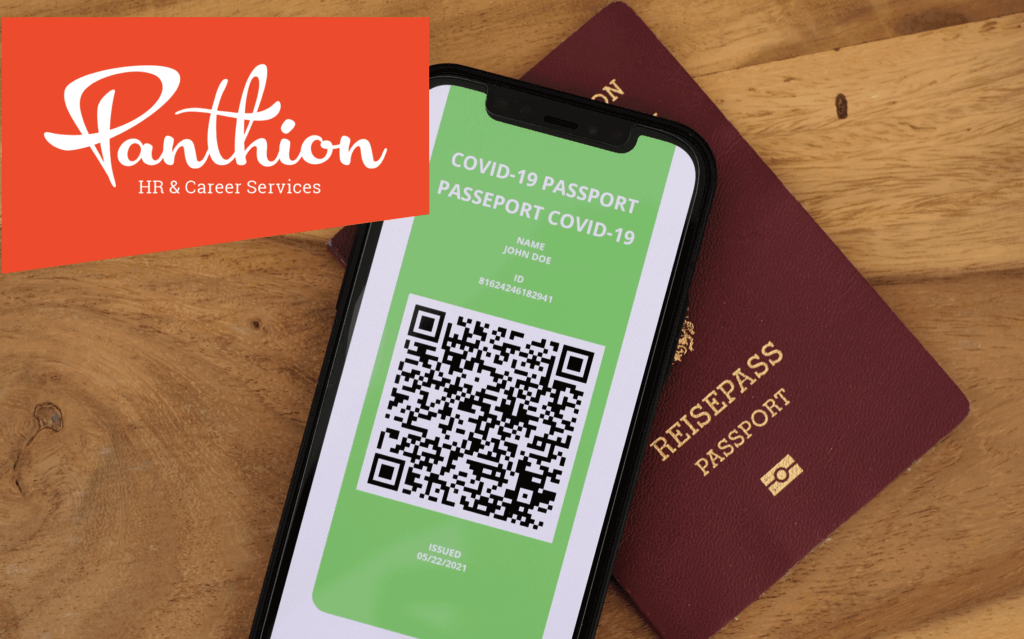
Infection rates are on the rise, and Tuesday will reveal what measures the government plans to take to address them. One possibility on the table is that you will soon have to show a QR code at work, just like in Italy. What would that mean? Five questions and answers.
1. In Italy, a QR code is already mandatory at work. How does that work?
In Italy recently, you already have to go to work with your QR code in your pocket. If workers choose not to get vaccinated, they should get tested about twice a week. And that’s not cheap. You pay between 120 and 180 euros in the month.
“Most Italians are in favor, about two-thirds of the population,” said correspondent Anouk Boone from Rome. “There is always a minority that speaks out loud, though. Occasionally there are then protests and there are a lot of Italians who have called in sick since they have to have coronapas at work.”
2. Can a Dutch employer ask for a QR code now?
“No, there is no direct legal basis for requiring that of employees now,” said Frank Penders, an employment law attorney at Otis Lawyers. An employer does have the right to ask an employee whether or not he or she has been vaccinated, in case there is a good reason to ask. But asking an employee for corona proof in the form of a QR code in order to allow or deny someone access to the workplace is not allowed because of privacy laws.
At the same time, as an employer, you must also create a safe workplace for your employee. Some companies refer to this when they do ask their employees for a QR code, Penders said. “But the judge hasn’t ruled on that yet.” The key, he says, is that as an employer, you then have to make policies in advance about what you will do if an employee does not have a QR code, or does not want to show it.
3. Will your employer soon be allowed to ask for such a QR code?
It’s a tricky situation for now, says employment law attorney Suzanne Meijers. In fact, as a hospitality boss, you are not currently allowed to ask your employees for a code. But if they come to have a cup of coffee in your business in their spare time, then again, they should. “That’s kind of strange,” Meijers said.
The fact that you can’t basically ask employees for a QR code now is going to change in the near future, expects fellow attorney Penders. Because if your job requires you to be on the assembly line in a factory, for example, it’s kind of hard for an employer. After all, you can’t let someone work from home then. You can think of many situations like this where you run into problems in practice, Penders said.
Meijers, on the other hand, thinks it would be difficult to make it legally possible for employers to ask for a QR code as well. “In turn, you get extra discussion.” So no one knows what will be announced next Tuesday at the coronapers conference.
4. What if you don’t have a QR code – or don’t want to show one?
If you don’t want to show your QR code, or don’t have one, as an employer you are not allowed to draw any consequences for that at the moment, says Pascal Besselink, a lawyer in labor law at legal services provider DAS. This means that in the current situation, an employer will simply have to allow his or her employees into the workplace at all times.
An employer may now prescribe that employees wear a mouth guard, for example, when it is impossible or difficult to keep a distance, Besselink explained. The same goes for additional measures on the shop floor, such as putting up splash guards.
You can, however – if by agreement – allow an employee to work from home when he or she does not have a QR code or does not want to show one, Penders believes. You can also slide the grids. For example, someone could do maintenance work when the other workers have gone home, or when the workplace is quieter. In office work, he says, you can also ensure sufficient distance in some cases.
5. Can your employer save your QR code, or do you have to show it every day?
Currently, this is not an issue, as an employer may not (yet) use it to deny someone access to the workplace, Besselink explained.
But should the Cabinet allow an employer to start asking for a QR code, the privacy law does not allow that employer to write down that data or store it in a computer. “At most, you may remember it in your mind,” Besselink said. “Although that becomes difficult in larger organizations.”
In practice, that would mean showing your QR code every business day in that case. Just as you now have to show your QR code every time you go to the theater or cinema, Penders adds.
Source: RTLNews.com

